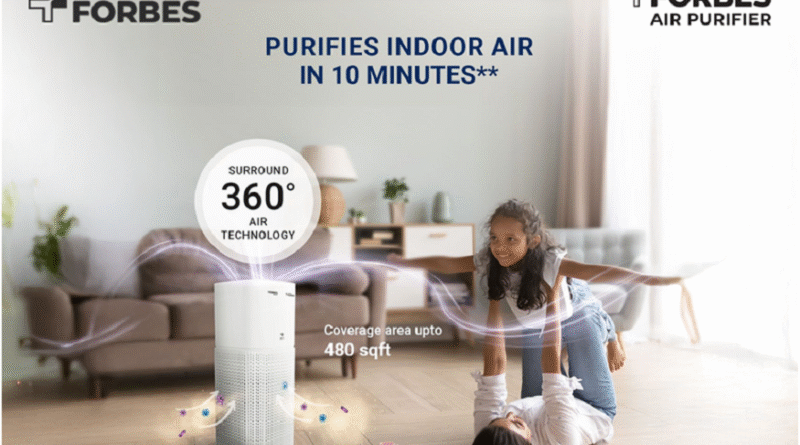Can An Air Purifier For The Home Improve Your Family’s Health?
Most people believe the air inside their homes is cleaner than the air outside, but it’s not true. Everyday activities such as cooking, cleaning, using aerosol sprays, and even just opening windows can introduce dust, pollen, smoke, volatile organic compounds (VOCs), and other pollutants into the indoor environment. Over time, this “invisible” pollution may contribute to allergies, respiratory irritation, fatigue, or a general decline in well-being. This is where an air purifier for home use can make a difference.
1. Reducing Allergens and Respiratory Irritants
Dust mites, pet dander, mould spores, and pollen are among the most common indoor allergens. They can linger in the air and settle on surfaces, making it difficult for sensitive family members to breathe comfortably. An air cleaner with a high-efficiency particulate air (HEPA) filter can capture up to 99.97% of these particles, reducing sneezing, coughing, and congestion. Cleaner air can help children and older adults, who often have more vulnerable respiratory systems, feel healthier at home.
2. Minimising Harmful Chemicals and VOCs
Even the cleanest homes contain chemical pollutants. Paints, furniture finishes, cleaning products, and kitchen fumes release VOCs and gases that can irritate the eyes, throat, and lungs. Over time, these substances can accumulate indoors. Modern air purifiers for home use often include activated carbon filters designed to absorb these gases and neutralise odours, making the indoor environment safer and fresher.
3. Supporting Better Sleep and Energy Levels
Air quality has a direct impact on sleep. Poor indoor air can trigger nighttime coughing, congestion, or itchy eyes, all of which interfere with deep rest. By continuously removing airborne particles and odours, a quiet air cleaner creates a fresher bedroom atmosphere. Many new models also feature whisper-quiet or “sleep” modes, so they run smoothly through the night and help everyone wake up feeling more refreshed.
4. Protecting Family Members with Health Concerns
Children, elderly family members, and anyone with asthma, allergies, or weakened immunity benefit most from improved air quality. Cleaner indoor air can reduce the frequency and severity of allergic reactions or respiratory flare-ups. By reducing exposure to harmful particles and gases, an air purifier for home use acts as an added layer of protection alongside medical care and other preventive measures.
5. Long-Term Health and Home Benefits
A well-chosen air cleaner not only improves daily comfort but can also reduce long-term health risks linked to indoor pollution. Less exposure to irritants means fewer allergy treatments and potentially fewer sick days. At the same time, keeping air free from particles can help reduce dust build-up on furniture and electronics, extending their lifespan and making cleaning easier.
Choosing the Right Air Purifier
When selecting an air purifier for the home, consider room size, filtration stages, and noise level. Look for a True HEPA filter for particulates and an activated carbon layer for odours and gases. Smart features such as air-quality sensors, app control, and automatic mode adjustments can also make operation effortless. While air purifier prices vary, investing in a reliable model offers long-term health and maintenance savings.
By removing allergens, chemicals, and odours, a modern air purifier for the home can support better breathing, deeper sleep, and overall well-being, an investment that benefits the whole family every single day.

